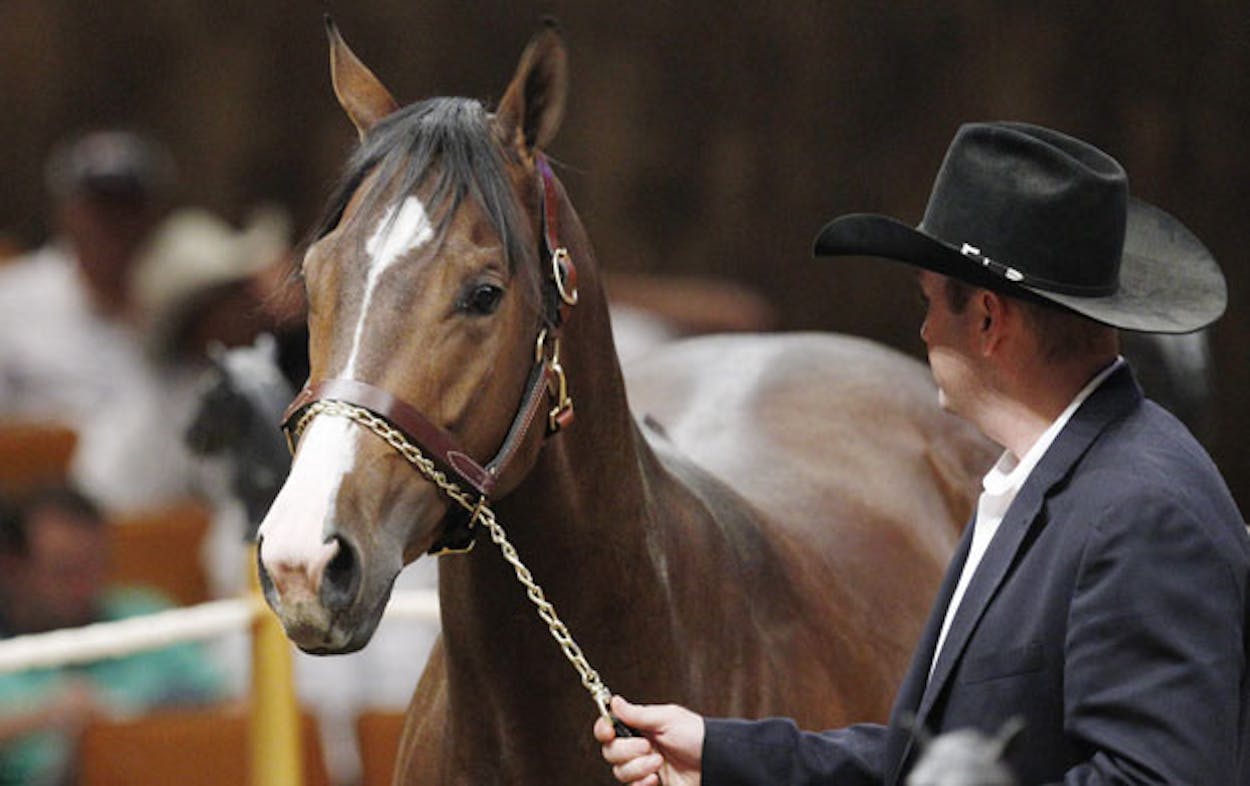Have you always wanted to own a horse named Cartel Mischief, Cartel Syndicate, or Breakoutthebullets? Well, you should have been at the U.S. government’s auction of Zetas racehorses in Oklahoma City last weekend.
The government made a cool $8.8 million by auctioning off some 300 horses over the weekend, the AFP reported. A horse (pictured above) named “A Dash of Sweet Heat,” a third place finisher at Ruidoso Downs this May, fetched $1 million.
But don’t worry, you’ll have another chance to buy a horse with a special story: The government still has 45 quarter horses yet to sell, including one named “Mr. Piloto,” which brought home a $1 million prize at Ruidoso Downs in 2010.
The federal government seized the horses in June. In the New York Times, Manny Fernandez declared that the sale, at Oklahoma City’s Heritage Place auction house, was “one of the most unusual horse shows Oklahoma has ever seen.” He offered this context about the June raid and the sale:
The horses were seized in June at an Oklahoma ranch run by José Treviño Morales, an older brother of one of the world’s most dangerous drug traffickers, Miguel Ángel Treviño Morales, a leader of Mexico’s Zetas drug cartel. The Treviño brothers established a prominent organization in the United States that bought, trained, bred and raced quarter horses, Tremor Enterprises, which allowed them to launder millions of dollars in drug money, the authorities said. The horses, bred from champion lineage, won some of the industry’s biggest races.
Mike Lemoine, a spokesman for the Internal Revenue Service’s Criminal Investigation Division, acknowledged to a reporter for StallionEsearch.com that the sale is an odd one: “Generally, on something that lives and breathes, we’re pretty cautious,” Lemoine said. “But the defendants agreed to this sale, which eliminates most of the risk for potential buyers.”
But going after the Zetas’s assets furthers U.S. government interests, US attorney Robert Pitman said, according to the AFP. “Like all criminal organizations, the Zetas are motivated by money,” Pitman said in a statement. “Identifying and taking their assets is an important way to lay an axe to the root of the tree.”







